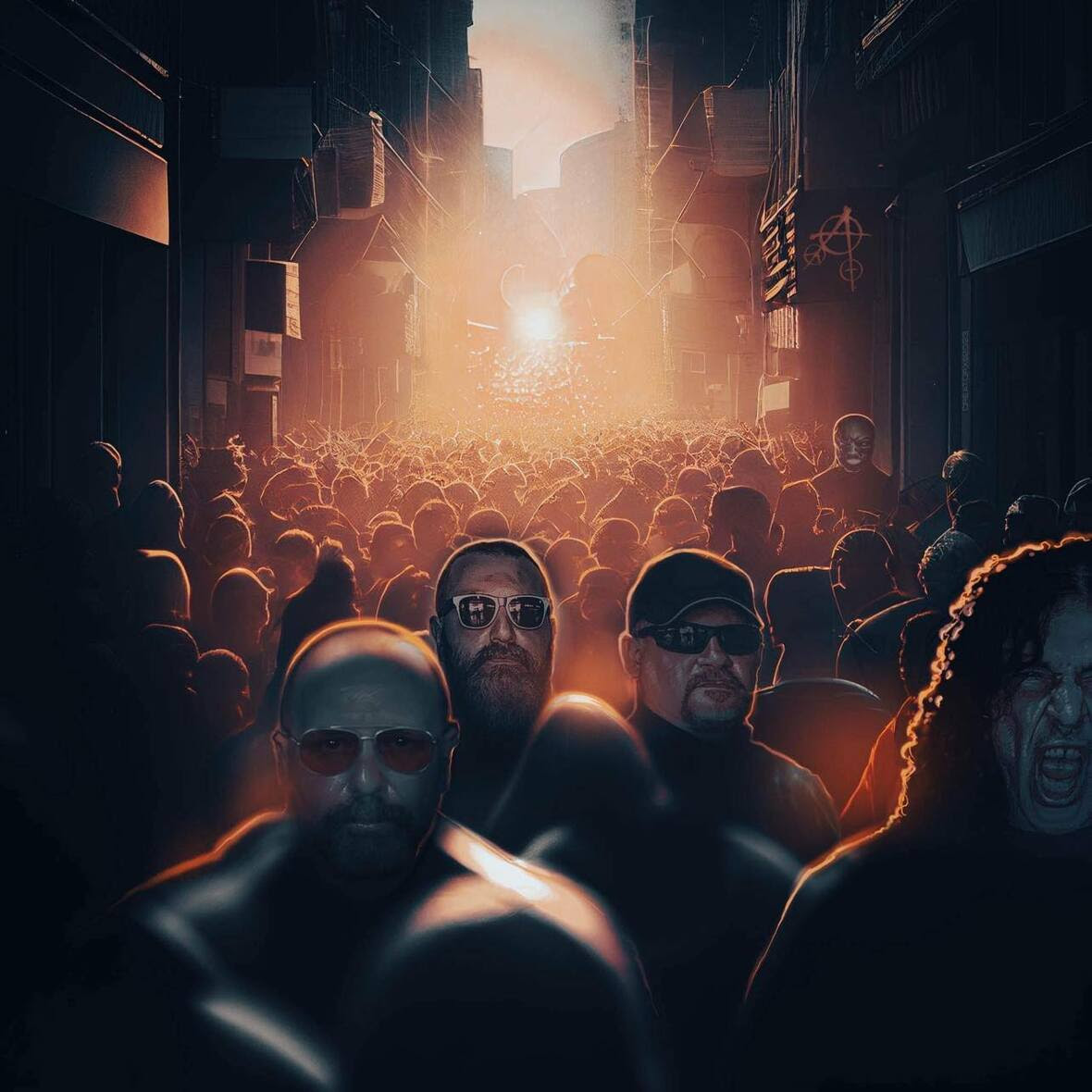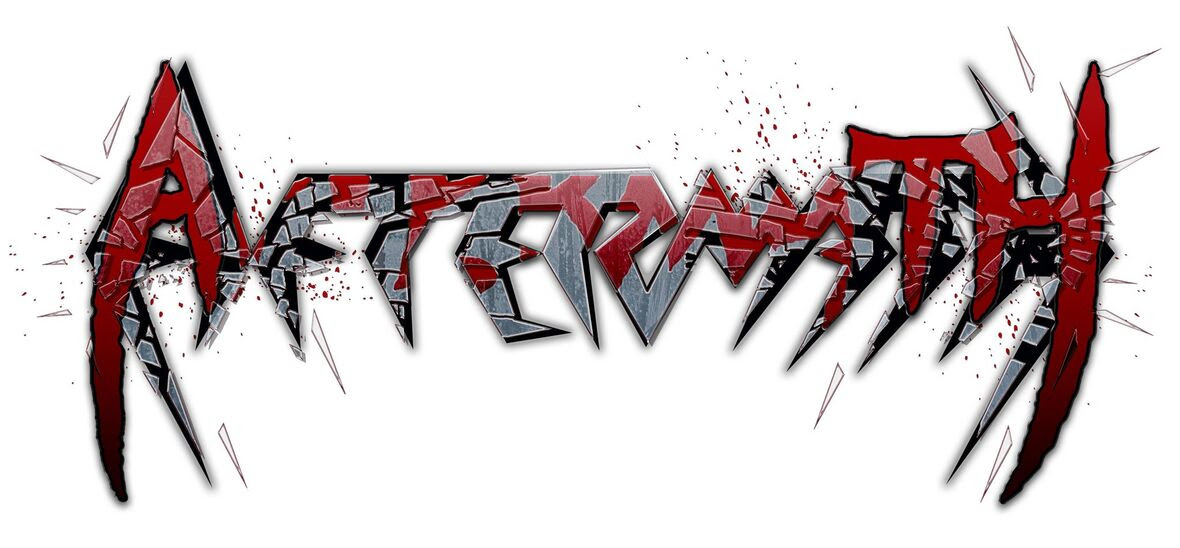| AFTERMATH released their highly anticipated new album, No Time to Waste via Zoid Entertainment/TLG/INgrooves on March 17, 2023. This marks the third album in a trilogy, and is a departure from the previous dark, concept album installment in the trilogy.“We are really proud of this album. It completes a trilogy of albums that began with our debut. Written in the darkest period in modern history, we actually wrote this one as an album of hope. We streamlined it from our previous dark concept record. The ten songs on this album are heavy and energized. It’s a metal record with a message and that message is we can do this together but we have no time to waste.” – Kyriakos “Charlie” Tsiolis.Stream/Purchase No Time To Wastehttps://ffm.to/aftermath-nttwNo Time To Waste Tracklisting:1. No Time To Waste2. Original Instructions3. Transform & Disrupt4. Up is Down5. SLAVeABLE (We’re Not Your Animals)6. We Can Do This Together7. Echo Chamber8. Strawman in the House of Cards9. We Don’t Want A Riot10. Give Peace A ChanceChicago based Aftermath, fronted by Kyriakos “Charlie” Tsiolis, formed in October 1985 when Charlie and his schoolmate Steve Sacco (Guitar) got together. This early incarnation with Adam (Bass) and Ray Schmidt (Drums) released their first demo in 1986 featuring “Sentenced to Death”, “Revenge”, “Shotgun” and “The Aftermath”.In 1987, they unleashed their second demo entitled Killing the Futurefeaturing the tracks “When Will You Die”, “Going No Place”, “Chaos”, “Meltdown” and “War for Freedom”. The band pursued a mind-blowing speed and technical brand of thrash that soon set them apart from the pack and in the process made them a pioneering crossover thrash band.The tracks “War for Freedom” & “When Will You Die” were both featured on the British Metal Forces magazine_compilation LP Demolition: Scream Your Brains Out in 1988. Their appearance on the Metal Forcescompilation further expanded the band’s international appeal.By 1988, the band’s musical direction was changing, and Adam’s raw and simple bass lines would soon be replaced with complex and technical bass parts handled at first by John Lovette. Ironically, John never played bass on any Aftermath recording and was not even a bass player. He wanted to join the band so badly, however, that he came to the audition with a friend’s bass he had just started to play. The speed and complex playing he displayed were like nothing the members had ever seen before on bass. He landed the gig that day. When the band decided it was time to add a second guitarist, Lovette told his bandmates of his desire to switch to guitar and for the first time he came clean he was a guitar player pretending to be a bass player all along. His bass playing was surpassed by his guitar skills and the band found its second guitar player, but unfortunately the search for a bass player was forced to resume. Luckily, the search (for the time being, anyway) ended with Danny Vega. His warm and precise playing was the perfect complement to the guitar playing of Lovette and Sacco and worked amazingly well with Schmidt’s powerful drumming. With Lovette handling most of the song writing duties, Aftermath was about to make an unbelievable musical change.By 1989, that change brought on by Lovette’s writing and the band’s musical tastes and stylings had slowed and matured as evidenced by the release of the underground classic demo Words That Echo Fear. Danny Vega was replaced on bass by Chris Waldron. The band went onto to become a trailblazing progressive/technical thrash band in the years that followed.In 1990, based on the huge international success of the Words that Echo Fear demo, the metal label RoadRacer Records (a subsidiary of Roadrunner Records) approached the band for a demo deal, which resulted in a live four track demo featuring the songs “Eyes of Tomorrow”, “Afraid Of Time”, “The Act Of Unspoken Wisdom” and “Reflecting Pictures”. Negotiations eventually broke down and Aftermath signed to New York’s Big Chief Records. The label’s collapse halfway through the recording sessions led to a long delay in finishing the record. While the band struggled to pay the studio bill, the album the band started to record in 1990 would not see the light of day for four years. The experience left the band reeling and forced them to issue the album under their own imprint with the help of their manager through Zoid Recordings in 1994. Four long years had passed since the initial recordings for the record Eyes of Tomorrow and the scene had dramatically changed.The album was subsequently re-released on Thermometer Sound Surface / Zoid and released yet again four years (1998) later on Black Lotus Recordsin a re-mastered version.Quite famously, Aftermath, in a notable court case Tsiolis v. Interscope. Records. Inc., 946 F.Supp. 1344, 1349 (N.D.III. 1996) sued high-profile millionaire rapper DR. DRE over the ownership of the Aftermath name. The Rapper tried to buy the name for $50,000, which the band rejected. The band sued him. As part of the settlement, Interscope Records signed the band. To the label’s surprise, the band delivered a record under the moniker Mother God Moviestar. Its eponymous Electro-Metal debut was released in March 1998. The case has been studied in law schools around the US related to the issue of trademark dilution. |




















